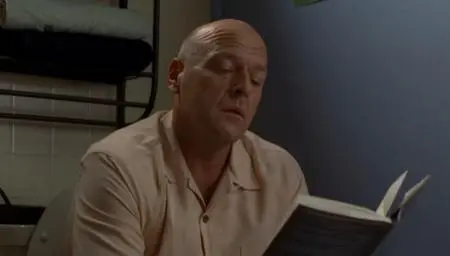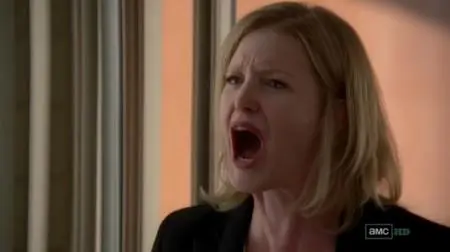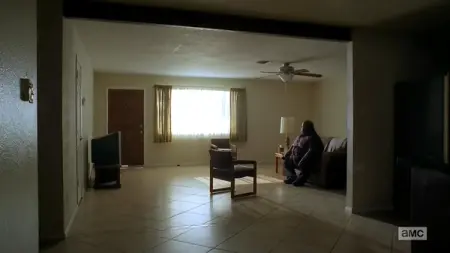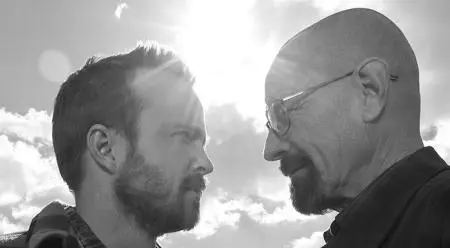“I liked it… And I was really—I was alive.” - Walter White, “Felina”, Breaking Bad
Walter White’s explanation for what was arguably, the most epic mid-life crisis ever, pretty much sums up the way I felt while watching nearly every episode of Breaking Bad. While the series was both superbly acted and shot, for me, it was the writing that made this show a once-in-a-lifetime experience.
Like a successful science experiment, the show’s writing answered some questions for me and raised others. Here’s my breakdown on what I took away from Breaking Bad.
1. The Use of the Classics—or Really Regretting Those Cliff’s Notes Now
There are almost too many allusions to classical literature in “BB” to count. The show itself has been called Shakespearean, Homeric. Skyler, with her scornful attitude to Walt, has been likened to Lady Macbeth. Hank, with his limp and dogged obsession with catching Heisenberg had reviewers calling him Captain Ahab. There’s Shelley’s ‘Ozymandias’ and that book by Whitman that Walt should have kept in a drawer. “The heart wants what the heart wants,” states that old softie, Uncle Jack. Dude, the nazis in Breaking Bad quote Emily Dickinson.

Confession: I’ve always thought the classics were called classic because they were like, old. I’m an avid reader, but all that flowery prose and those uber-dense passages often used in literary works of yore have always left me cold. But ‘BB’ has got me wondering. Would the show have been as masterful had creator Vince Gilligan and his writing team not been so familiar with such concepts as the five act structure, and themes such as hubris and redemption? Of course, these have all been played and replayed in countless modern works, but is the work stronger from having been distilled directly from the source?
And what about the reviewers who gleefully pointed out the similarities to the Skyler pool scene with the Ophelia drowning scene in Hamlet, or the Biblical connotations regarding the lily of the valley that poisoned Brock? Were they able, because of their knowledge, to have a richer and more critical appreciation of the show? This is not so much a takeaway as a question. All those times I read Cliff’s Notes or the like to just pass an exam, was I also passing by a very rich foundation for my own work?
Maybe it’s time to dig into the classics. Except for Proust. Anything but Proust.
2. Skyler vs. Carmela Soprano or How to Write an Anti-anti-hero People Won’t Hate.
"Somebody has to protect this family from the man who protects this family.” - Skyler White, “Cornered”, Breaking Bad
Anna Gunn, the actress who plays Walter White’s wife, recently wrote a NY Times Op-Ed entitled ‘I Have a Character Problem,’ about the vitriol fans have directed both at her character and herself. Meanwhile, Carmela, Mafia Wife Extraordinaire, enjoyed far more professional and personal acclaim.
On the face of it, Carmela and Skyler have a lot in common: Carmela dropped out of college and Skyler harboured ambitions to be a writer. Both women used their husbands’ nefarious deeds and clout to profit from and intimidate others. They both had affairs. But for me, Carmela was a far more sympathetic character than Skyler (though Anna Gunn played the latter brilliantly).

Sure, a lot of the hatred of Skyler probably stemmed from misogyny. Viewers hated when she was innocent of Walter’s misdeeds and they hated her when she became his A1 partner in crime. Girlfriend just couldn’t win.
But to my mind, Skyler’s problem wasn’t one of character but of plot. Whenever she was in a scene with Walt, with her questions and her arguments and her nagging (who can forget the scene where Walt very politely requests that she “climb down out of his ass”?) the story stopped. We wanted Heisenberg. We wanted him to cook and kill and win. Every time Skyler appeared, she seemed determined to drag him back to the nebbish walkover he had been, thus inciting our urge to root against her and for the downtrodden, misunderstood genius who lives in us all.
Mrs. Soprano could be just as combative when pushed, but we also saw life from her perspective. While Skyler merely reacted to Walt’s actions, Carmela had wants and needs of her own. We saw her struggle to become an entrepreneur and to build a life for herself away from Tony. We also saw in Carmela an emotional hunger, whether it was in trying to force her husband to see her as something other than the mother of his children, or quietly falling in love with her priest. Unlike Skyler, we also see Carmela through the good times, and the fact that, despite who Tony Soprano was and what he was capable of, she (sometimes) liked her husband. I believe Skyler loves Walter. You can see it even in that last, tortured scene in her kitchen. But your never get the sense that she had any affection for who the pre-meth Walt was as a person.
Of course, not every character is meant to be liked. However, if you don’t want to have a major character roundly despised, these three things seem to be necessary: a look at their life from their POV, emotional vulnerability...
..and for the protagonist--sympathy, even if he is the devil.
3. Some Things Are Better Left Unsaid
Breaking Bad left us with both unanswered questions and blink-and-you’ll-miss-them moments of poignancy. Two of the latter include Skinny Pete showing off his piano virtuoso skills during one of the rare scenes in which he isn’t high, subtly showing us the wasted potential of an addict’s life. When Jesse Pinkman beats up Saul Goldman in his office during their final meeting, we witness the usually impassive Huell weeping tears for the boss we discover that he loves. It’s these fleeting moments of discovery that can make the most minor of characters, and the story in which they dwell, both memorable and real.
As far as questions go, was I the only one who wondered why Hank and Marie had no kids, when they were clearly fond of them? And for all the emphasis on “family”, why is it that we never see or hear about the parents of Walt, Hank and the two sisters? One would think, at least, that one of the arguments between Skyler and Marie would go…
“I’ll tell Mom and Dad that you’re shoplifting!” - “Oh yeah? I’ll tell them that your husband is the meth druglord of the Southwest...!”
It’s almost as though the four adults are orphans clinging to each other, at least until Walt’s actions make that impossible.
By not spelling out every detail of the characters’ pasts, the writing forces us to draw our own conclusions about their behavior in the present, thus involving us more deeply in their lives.

By the way, do you think Huell is still waiting in that room?
4. Every Story Is a Love Story
“No man chooses evil because it is evil; he only mistakes it for happiness, the good he seeks.” - Mary Wollstonecraft, philosopher
At first glance, the driving force in Breaking Bad seems to be material gain. Walt becomes a criminal for it. Skyler sacrifices her integrity for it. Nabbing Heisenberg would be the career boon Hank lusts for. Even Marie fills some unnamed void within her by pilfering items from stores and private homes.
However, to my mind, the motivating force behind Breaking Bad was love. Either no one had enough of it, or they became unhinged when it was lost.
Hank became so obsessed with nailing the brother-in-law who had betrayed his love, that he was willing to sacrifice his star witness Jesse’s life and ultimately, to die himself rather than agree to allow Walt to walk free. Jesse spends a large part of the show either giving or throwing his money away, yet he continues to be drawn into Heisenberg’s web, because of his need for a “father” for whom he holds some worth. Skyler, it can be argued, is as self-delusional as her husband. Her love of the dream, the safe, suburban American Dream her family lived had to be maintained, even as evidence mounted that safe was the last thing they all were.

And Walt. Walt was all about love, man. But love kept being taken away from him. Gretchen and his work for Grey Matter were long gone. His wife treated him like a schmo. His son and namesake changed his name and thought Uncle Hank was cooler.
No one gave Walter White the love and understanding he needed. Thus, he decided, to paraphrase Machiavelli badly (there go those classics again!) that if he couldn’t be loved, being feared was the next best thing.
The most important thing Breaking Bad taught me is that no major character, no matter how “evil”, can meaningfully exist without having the desperate need for someone, anyone, to see the good that lives within them.
See, if only someone had given Heisenberg a hug…
Well, those are my thoughts on ‘Breaking Bad’. Now, I leave you with two questions:
- Did ‘BB’ teach, or reinforce, anything for you as a writer?
- What the hell am I supposed to watch now?

About the author
Naturi is the author of How to Die in Paris: A Memoir (2011, Seal Press/Perseus Books) She's published fiction, non-fiction and poetry in magazines such as Barrow St. and Children, Churches and Daddies. At Sherri Rosen Publicity Int'l, she works as an editor and book doctor. Originally from NYC, she now lives in a village in England which appears to have more sheep than people. This will make starting a book club slightly challenging.








